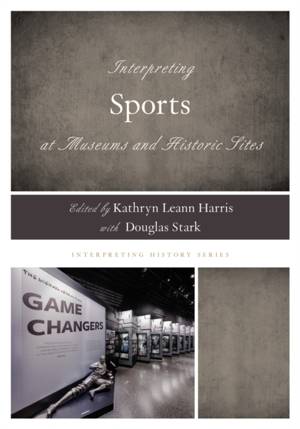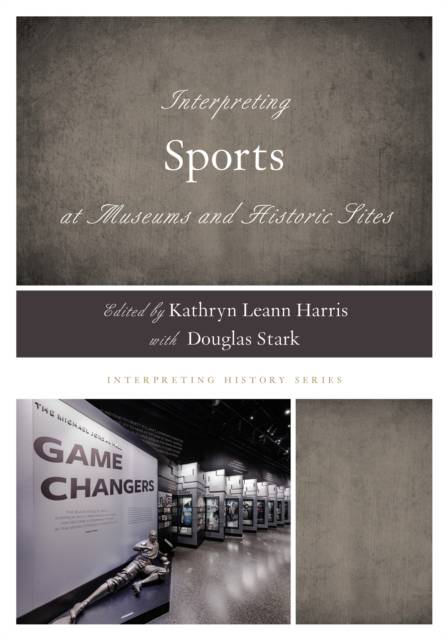
- Retrait gratuit dans votre magasin Club
- 7.000.000 titres dans notre catalogue
- Payer en toute sécurité
- Toujours un magasin près de chez vous
- Retrait gratuit dans votre magasin Club
- 7.000.000 titres dans notre catalogue
- Payer en toute sécurité
- Toujours un magasin près de chez vous
Interpreting Sports at Museums and Historic Sites
Description
Sports are intertwined with American society. Since the earliest forms of native games to today's extreme competitions, sports have left an indelible mark on the fabric of American culture. Today, sports are a multibillion-dollar industry. Social media provides a never ceasing outlet for community interaction surrounding sporting events and discussions. At their core, sports are an opportunity for self-exploration through the lens of competition, social structures, and community building.
Interpreting Sports at Museums and Historic Sites encourages museums, historical sites and cultural institutions to consider the history of sport as integral to American culture and society. Sports provide a vehicle to understanding the growth and development of America from colonization to globalization. Central to this work is a call to bring a balanced view of humanity to the sports commemoration conversation. Museums can and should be places of advocacy and inclusion for all athletes and sports figures: young & old, ametuer & professional, past & present. Practitioners are encouraged to consider museums as safe spaces to approach empathetic, complex, enthralling conversations that allow for both celebratory and challenging topics.
This comprehensive study provides analytical direction and practical application for interpreting sports history at a variety of sites; guiding sports and non-sports museum professionals alike. A robust series of essays illuminate the innovative, forward thinking nature of sport exhibition and programming that is an active part of the American museum experience. Thirty-two national and international authors take an honest look at the ways sports impacts culture and culture impacts sports. Six thematic essays uncover the particularities of navigating the sports historical landscape alongside an actively engaged, present-day audience. Then, a wide selection of case studies explore successful and unsuccessful attempts at attracting the public and engaging in educational discussion around both uplifting and difficult sports topics.
Opportunities for including sports in exhibition planning and programmatic development are a key benefit of this practical guide. You'll discover an astounding variety of viewpoints and methods for offering popular sports programming into your institutional programming and outreach efforts. From a fun mix of museum professionals, historians, and sports personnel comes this complete guide to developing and implementing a more cohesive story of sport history within your institution.
Spécifications
Parties prenantes
- Editeur:
Contenu
- Nombre de pages :
- 276
- Langue:
- Anglais
- Collection :
Caractéristiques
- EAN:
- 9781538103173
- Date de parution :
- 28-03-23
- Format:
- Livre broché
- Format numérique:
- Trade paperback (VS)
- Dimensions :
- 178 mm x 254 mm
- Poids :
- 480 g






